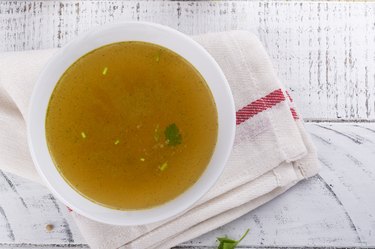Sulfites are used in the food industry to keep food from going bad, keep the flavor, stop bacteria from growing, and bleach food starches. Sulfites are metabolized by the enzyme sulfite oxidase. And yet, the American Academy of Allergy, Asthma, and Immunology says that some people are enzyme deficient, which can cause an allergy or intolerance to sulfite. If you are allergic to sulfites, you might get asthma, hives, stomach pain, nausea, vomiting, diarrhea, seizures, anaphylactic shock, dizziness, and skin problems. Avoid sulfites, sulfur dioxide, sodium sulfite, sodium bisulfate, potassium bisulfate, sulfating agents, and sulfurous acid if you have a sulfite allergy. These things all show that sulfites are present.
Deli meats, hot dogs and sausages contain sulfites. Fish and seafood with sulfites include canned clams, all types of shrimp, frozen lobster, scallops and dried cod.
Dried fruits often contain sulfites to preserve their color. Fruit juices in a can, a bottle, or frozen, glazed fruits, fruit toppings, and maraschino cherries are all examples of fruit products that contain sulfites.
Sulfites are often found in vegetable juice, canned and dried vegetables, pickled vegetables, instant mashed potatoes, frozen potatoes, and tomato products in a can.
Different companies use sulfites in different ways in their baked goods, so it’s best to read the labels before buying commercially made baked goods. Products that may contain sulfites include cookies, crackers, pie, pizza crust and flour tortillas.
Bacon is a beloved breakfast food for many people The savory, smoky flavor pairs perfectly with eggs, pancakes, hashbrowns and more But with an ingredient list that includes sodium nitrite and sodium erythorbate, it’s natural to wonder – are there sulfites in bacon? Let’s take a closer look.
What are Sulfites?
Sulfites are chemical compounds containing sulfur. They occur naturally in some foods, but are also commonly added as preservatives.
Sulfites prevent oxidation and bacterial growth in foods They help maintain color, texture and flavor Sulfites are generally recognized as safe by the FDA. But an estimated 3-10% of asthmatics have sulfite sensitivity. Reactions can include headaches, rashes, stomach pain and swelling.
On labels, sulfites go by names like sodium bisulfite sulfur dioxide and potassium metabisulfate. People with sulfite sensitivity should avoid foods containing these ingredients.
Sulfites in Meat Products
In fresh meats, sulfites can cause depletion of thiamine, or vitamin B1. For this reason, unprocessed fresh meats don’t contain added sulfites.
However, processed meats like sausages, deli meats and bacon commonly contain sulfites. The curing process uses ingredients like sodium nitrite for preservation and color. Sodium erythorbate is also added to speed cure time.
While sodium nitrite and sodium erythorbate are not sulfites themselves, they essentially have a similar function. These ingredients also prevent growth of harmful bacteria in cured meats.
So while pure pork belly doesn’t contain added sulfites, once it’s cured and smoked to make bacon, sulfites are present. Reading ingredient lists is the only way to know for sure.
Potential Bacon Sulfite Sources
Here are some common bacon ingredients that can contain sulfites:
- Sodium nitrite – curing agent added for color and preservation
- Sodium erythorbate – speeds curing time
- Smoke flavoring – often contains sulfites as preservatives
- Dextrose – prepared from sulfite-treated cornstarch
- Spices – may contain sulfites to maintain color and potency
Curious about pre-cooked bacon? Sulfite-containing ingredients are likely used in processing for shelf stability.
Health Impacts of Bacon Sulfites
For most people, the small amounts of sulfites in bacon don’t cause issues. But some key considerations for sulfite-sensitive individuals include:
-
Headaches – Sulfites are commonly blamed for “red wine headaches.” Bacon can have a similar effect in sensitive people.
-
Asthma – Sulfites may trigger asthma attacks in susceptible individuals. Limiting bacon intake is wise.
-
Vitamin B1 – Thiamine depletion from sulfites could potentially lead to fatigue, confusion and nerve damage.
-
Gut health – Sulfites may inhibit beneficial probiotic bacteria in the intestines. Eat probiotic-rich foods to counteract.
-
Nitrosamines – Curing agents in bacon can combine to form nitrosamines, which are carcinogenic compounds. The WHO says nitrosamine intake should be as low as reasonably achievable.
For those avoiding sulfites, uncured bacon may be an option if ingredients like celery powder and sea salt are used instead of sodium nitrite. Verifying sulfite-free status requires careful label reading.
Tips for Limiting Bacon Sulfites
Here are some suggestions for people looking to reduce sulfites from bacon:
-
Choose uncured or no-nitrate bacon – read labels closely
-
Look for low-sodium bacon – may contain less nitrites
-
Opt for nitrite-free preservatives like celery juice powder
-
Buy bacon from local butchers and ask about curing
-
Make your own bacon using sulfite-free ingredients
-
Limit portion sizes of bacon – 1-2 strips few times weekly
-
Balance with probiotic foods like kimchi, kombucha, kefir
-
Boost thiamine intake with pork, sunflower seeds, oats
-
When dining out, request bacon cooked crisp – reduces nitrosamines
The Bottom Line
Most bacon contains small amounts of sulfites from curing agents, smoke flavoring and other ingredients. While not a concern for many, people with sensitivities may experience headaches, asthma attacks or other reactions after eating bacon. Checking labels for terms like sodium nitrite and reading ingredient lists carefully is key. Seeking out uncured bacon or limiting intake may help those looking to avoid sulfites from bacon.
:max_bytes(150000):strip_icc()/bacon_annotated2-1efa80033a7f4f9ebb9fb187773aafe7.jpg)
Packaged and Instant Products
Sulfites are found in a lot of convenience foods, like gravy mixes, bread and batter mixes, instant rice and pasta mixes, and both plain and flavored gelatins. Condiments with sulfites are horseradish, relish, pickles, olives, salad dressings, wine vinegars, jams and jellies.



Most alcohols have sulfites, which are produced during the fermentation process. Instant tea, tea concentrates and cider also contain sulfites.
Some other foods that might have sulfites are corn syrup, maple syrup, soy protein, shredded coconut, white and brown sugars made from sugar beets, and modified food starch.
Advertisement references & resources
Is this an emergency? If you are experiencing serious medical symptoms, please see the National Library of Medicine’s list of signs you need emergency medical attention or call 911.
What is Sulfite? – Sulfite Sensitivity Symptoms – Dr.Berg
FAQ
Do meats have sulfites?
What foods are high in sulfites?
Does smoked bacon contain sulphites?
Can you be allergic to bacon?
Which foods are naturally rich in sulfites?
Ironically, many of the foods that are naturally rich in sulfites are also rich in probiotics, such as fermented foods like sauerkraut and kimchi. This is because sulfites are a natural byproduct of fermentation .
Are sulfites safe to eat?
Most of the packaged foods we eat need some type of food additives to keep the foods from spoiling or to improve the flavor or appearance. Sulfites are sulfur-based food additives that preserve freshness. In general, when sulfites are added to foods and drinks, they are safe for most people and come without any health risks.
Why are there no safe food lists for people with sulfite sensitivity?
A lack of “safe” food lists may be challenging to find because many people with sulfite sensitivities have different experiences. It may also be due to the confusing nature of sulfite sensitivity and the lack of research about sulfites in food.
Which grains are sulfite-free?
When choosing grains for a sulfite-free diet, it’s essential to check the ingredient labels of processed foods, as some grain-based products may have added sulfites or sulfite derivatives as preservatives or processing aids. Beans, such as kidney beans, black beans, and pinto beans, do not naturally contain sulfites.
